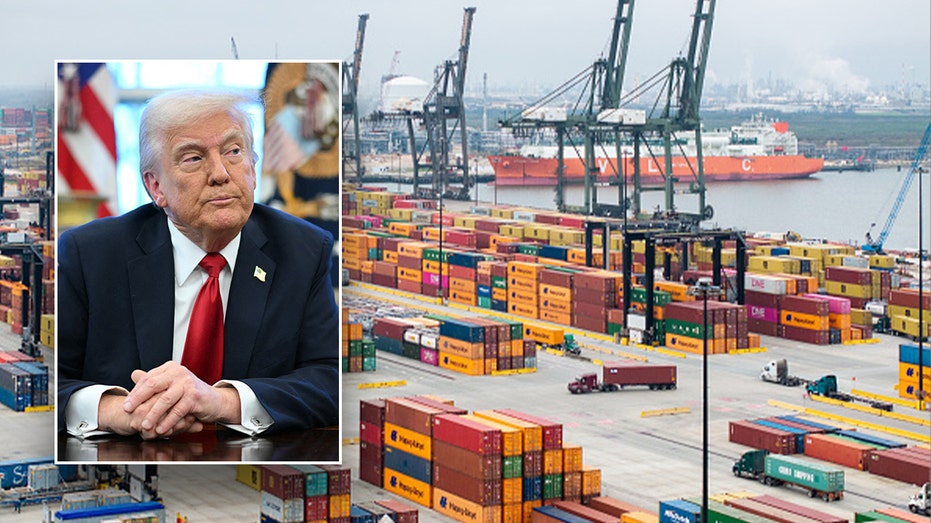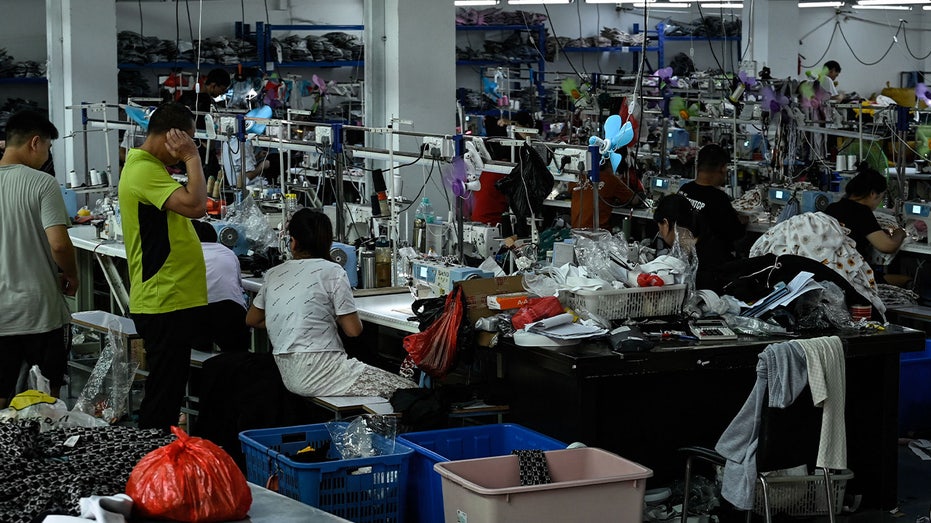President Donald Trump has today closed a tariff loophole that companies like Chinese e-commerce giants Shein and Temu have been using to sell cheap goods into the U.S. tariff-free – which will likely impact prices on U.S. consumers.
Trump has eliminated what’s known as the “de minimis” exemption where imports valued under $800 from China and Hong Kong were not subject to tariffs or required to undergo rigorous customs checks. The loophole has also been criticized for allowing shipments of fentanyl precursors to enter the country.
The change comes into effect one month after Trump signed an executive order to end the loophole which has been in place since 1938. The goods now face up to 145% tax rate or are subject to a flat fee which will likely be passed on to the consumer.
HOW TRUMP’S TARIFFS CLOSED THE LOOPHOLE USED BY CHINESE RETAILERS
Nearly half (48%) of de minimis shipments from sites like Shein and Temu go to the poorest U.S. zip codes, while only 22% reach the wealthiest, according to research by UCLA and Yale economists.
The executive order said it was a “critical step in countering the ongoing health emergency posed by the illicit flow of synthetic opioids into the U.S.”
The White House said that many Chinese-based shippers hide illicit substances, including synthetic opioids, in low-value packages to exploit the de minimis exemption. Figures from the Centers for Disease Control and Prevention (CDC) estimate a staggering 107,543 drug overdose deaths in the U.S. during 2023.
Prior to the closing of the loophole, Customs and Border Patrol (CBP) processed over 4 million de minimis shipments into the U.S. each day, the White House said. Last fiscal year, CBP apprehended more than 21,000 pounds of fentanyl at our borders, enough fentanyl to kill more than 4 billion people.

PRESSURE FROM SHEIN, TEMU ACCELERATE RETAIL CLOSURES
An investigation by Reuters reporters last year found that they were able to use the de minimis loophole to import the main precursor chemicals for at least 3 million fentanyl tablets due to overseas shippers intentionally mislabeling the packages as electronics.
Fast-fashion giant Shein sought to reassure customers in a post on its U.S. Instagram account on Thursday, saying: “Some products may be priced differently than before, but the majority of our collections remain as affordable as ever.” Shein sells clothes mostly manufactured in China, and the U.S. is its biggest market.
Temu, the international arm of Chinese e-commerce giant PDD Holdings, prominently featured products already in U.S. warehouses on its website, labelled “Local,” and a pop-up informed customers there would be no import charges for local warehouse items.
“All sales in the U.S. are now handled by locally-based sellers, with orders fulfilled from within the country,” Temu said in a statement, adding that it’s pricing for U.S. customers “remains unchanged.”
But items imported before the May 2 change will eventually run out. Both Shein and Temu have slashed their U.S. digital advertising spending in the past weeks as they prepared for the change that is likely to hit their sales.

Shein and Temu have seen rapid growth in the U.S. market through de minimis shipments of fast fashion, toys and other consumer goods to cost-conscious consumers. A report by the Congressional Research Service (CRS) noted that Shein and Temu combined to comprise about 17% of the U.S. discount market as of November 2023.
The rise of Shein and Temu has contributed to an increase in U.S. retail store closures, according to a report by Coresight Research. It estimated that about 15,000 closures will occur in 2025 after there were 7,323 closures in 2024 – which was the highest number of closures since 2020, when nearly 10,000 stores shut down.
Some experts believe the closure of the loophole will help U.S. manufacturers become more competitive against the e-giants.
Kim Glas, the president of the National Council of Textile Organizations, which represents American textile makers, said it had “devastated the U.S. textile industry.”
“This tariff loophole has granted China almost unilateral, privileged access to the U.S. market at the expense of American manufacturers and U.S. jobs,” Glas told the New York Times. Her group had advocated for its abolition.
Fox Business’ Eric Revell and Reuters contributed to this report.
Read the full article here















